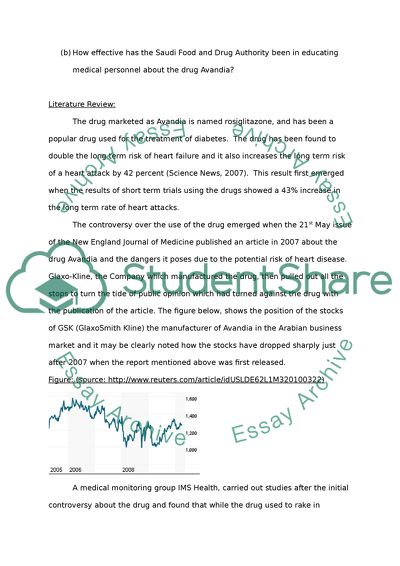Cite this document
(The General Guidelines Provided by the Saudi Food and Drug Authority Research Paper, n.d.)
The General Guidelines Provided by the Saudi Food and Drug Authority Research Paper. Retrieved from https://studentshare.org/health-sciences-medicine/1735501-postmarketing-survilance-of-drugs-in-saudi-avandia
The General Guidelines Provided by the Saudi Food and Drug Authority Research Paper. Retrieved from https://studentshare.org/health-sciences-medicine/1735501-postmarketing-survilance-of-drugs-in-saudi-avandia
(The General Guidelines Provided by the Saudi Food and Drug Authority Research Paper)
The General Guidelines Provided by the Saudi Food and Drug Authority Research Paper. https://studentshare.org/health-sciences-medicine/1735501-postmarketing-survilance-of-drugs-in-saudi-avandia.
The General Guidelines Provided by the Saudi Food and Drug Authority Research Paper. https://studentshare.org/health-sciences-medicine/1735501-postmarketing-survilance-of-drugs-in-saudi-avandia.
“The General Guidelines Provided by the Saudi Food and Drug Authority Research Paper”. https://studentshare.org/health-sciences-medicine/1735501-postmarketing-survilance-of-drugs-in-saudi-avandia.


